Reading Wittgensteins
Philosophical Investigations
Reading Wittgensteins
Philosophical Investigations
A Beginners Guide
John J. Ross

Published by Lexington Books
A division of Rowman & Littlefield Publishers, Inc.
A wholly owned subsidiary of The Rowman & Littlefield Publishing Group, Inc.
4501 Forbes Boulevard, Suite 200, Lanham, Maryland 20706
http://www.lexingtonbooks.com
Estover Road, Plymouth PL6 7PY, United Kingdom
Copyright 2009 by Lexington Books
All rights reserved. No part of this book may be reproduced in any form or by any electronic or mechanical means, including information storage and retrieval systems, without written permission from the publisher, except by a reviewer who may quote passages in a review.
British Library Cataloguing in Publication Information Available
Library of Congress Cataloging-in-Publication Data
Ross, John J., 1956
Reading Wittgensteins Philosophical investigations : a beginners guide / John J. Ross.
p. cm.
Includes bibliographical references.
ISBN 978-0-7391-3674-4 (cloth : alk. paper) ISBN 978-0-7391-3675-1 (pbk. : alk. paper) ISBN 978-0-7391-3676-8 (ebook)
1. Wittgenstein, Ludwig, 1889-1951. Philosophische Untersuchungen. 2. Philosophy. 3. Language and languagesPhilosophy. 4. Semantics (Philosophy) I. Title.
B3376.W563P532715 2009 |
192dc22 | 2009033029 |
 The paper used in this publication meets the minimum requirements of American National Standard for Information SciencesPermanence of Paper for Printed Library Materials, ANSI/NISO Z39.48-1992. Printed in the United States of America
The paper used in this publication meets the minimum requirements of American National Standard for Information SciencesPermanence of Paper for Printed Library Materials, ANSI/NISO Z39.48-1992. Printed in the United States of America
For Nina
Contents
Introduction
The Aim of the Present Work
This book is intended as a guide for anyone who faces the daunting task of reading Ludwig Wittgensteins Philosophical Investigations. Hence, it is primarily aimed at philosophy students, but I think it might be used by anyone with an interest in reading the Investigations. The key word here is used. This book is intended to be a handbook, and so should be read in conjunction with the Investigations. It is not meant to be a summary or exposition of the Investigations that can be read independently. I will elaborate on this in what follows.
Attempting any sort of commentary on Wittgensteins Philosophical Investigations is bound to be a difficult business. The chief difficulty is the obscurity of the work. Most of the blame for this rests with Wittgenstein himself, who took no pains to clarify his work or make understanding it any easier for the reader. A further tendency among commentators that adds greatly to the confusion surrounding the Investigations is the attempt at fitting Wittgenstein into a particular philosophical mold. There has been an inclination, particularly early on, but which still exists, to see Wittgenstein simply as an analytic philosopher or a positivist. Many commentators have tried to understand Wittgenstein through the lens of traditional philosophywhether that tradition is classical, modern, analytic, or even phenomenological. He has also been linked to Freudianism, deconstruction, existentialism, skepticismthe list of Wittgenstein and... books is long. Clearly, there is an enormous amount of secondary literature on Wittgenstein, and it shows no sign of abating. It has been well said that for someone who generally disdained academic philosophy, Wittgenstein has certainly kept many of us in business.
It is not my purpose here to take issue with any of Wittgensteins interpreters, but it should be noted that there are a variety of often-conflicting approaches to Wittgenstein and the study of his work. A beginning student trying to survey this secondary literature would understandably get confused, possibly dizzy (or maybe just bored silly).
Obviously, this scholarship on Wittgenstein contains a great deal that is commendablehis work would be impossible to understand without it. And there is undoubtedly a similarity between Wittgenstein and some other thinkers of the twentieth century, particularly those we would call postmodern. It would be wrong to deny the connection between Wittgenstein and analytic philosophy or positivism. For a while Wittgenstein was certainly taken with Freud, and many have noted the therapeutic nature of Wittgensteins later work. Wittgensteins admiration for Kierkegaard is well documented, and so a connection with existentialism is certainly not beyond the pale.
Be that as it may, I think many of the approaches that connect Wittgenstein to various isms have suffered, in general, from trying to connect Wittgenstein to one or more philosophical theories. Typically, from Wittgensteins remarks on psychology one thinker tries to see Wittgenstein as advancing or supporting some psychological hypothesis. Based on his remarks on language another makes a connection to a theory of meaning. But I hope I can demonstrate in what follows that this approach to the Investigations clouds rather than clarifies the work.
Wittgenstein expressly denies that he is advancing any philosophical theories in the Investigations, and I would say that he makes a similar denial in the Tractatus. Consider the following quote from the Tractatus.
6.53 The correct method in philosophy would really be the following: to say nothing except what can be said, i.e., the propositions of natural sciencei.e. something that has nothing to do with philosophyand then, whenever someone else wanted to say something metaphysical, to demonstrate to him that he had failed to give a meaning to certain signs in his propositions. Although this would not be satisfying to the other personhe would not have the feeling that we were teaching him philosophythis method would be the only correct one.
While reading Philosophical Investigations I have often felt like the would-be student of philosophy mentioned above. That the work contains a critique of various philosophical ideas becomes obvious after a while, but I have often wanted to say, Well, if this is wrong, then tell me what is right. What is the correct theory of concepts, the mind, language, etc.? Despite vehement protests from the work to the contrary, I kept thinking that there were theories or viewpoints to be found, that it must be a puzzle that I was supposed to figure out, as in one of Wittgensteins much beloved detective magazines. After all, Wittgenstein said in his preface that he was not trying to spare anyone the trouble of thinking. But the theories or philosophy that I was hoping to find eluded me, and I began to think that perhaps they always would.
However, once I let go of the notion that the Investigations contained certain theories or ideas that were cryptically presented, the work became clearer. Contrary to first impressions, I think Wittgenstein is being very straightforward in the Investigations. Wittgenstein maintains (and often corrects) many important themes of the Tractatus. In fact, although this statement will require a great deal of elaboration, I would say that the heart of both the Tractatus and the Investigations is logic. The Investigations identifies philosophy with the logical critique of language, and the whole project is aimed at showing the futility of trying to cross the boundaries of language. We invest in many pictures that we think will get us there. It is only when we give up these pictures that the truth has a chance to emerge. But dont look to Wittgenstein for this truth. Wittgensteins work is of a logical nature, and so is neither true nor false in that sense. In other words, a truth of logic such as a = b, b = c, therefore a = c does not represent an empirical or scientific truth. A logical truth cannot be proven by real-world facts or evidence in the way, for example, a scientific theory is proven true by an experiment or an observation. So, as we will see, Wittgenstein is not doing science, psychology, anthropology, or anything of the sort. His aim is to focus the lens through which we look at language so that we say clearly only what can be said.



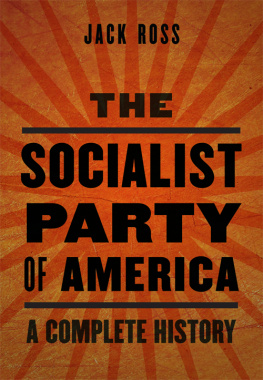
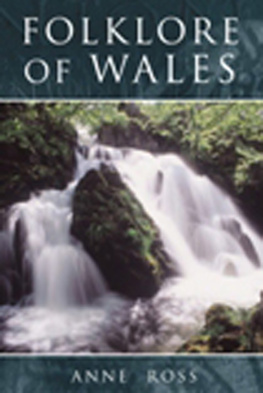


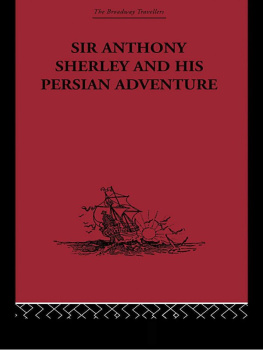
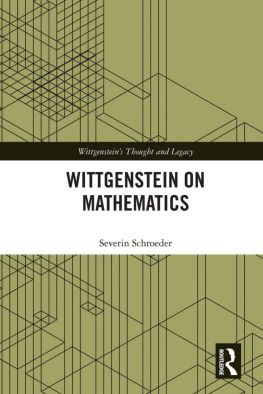
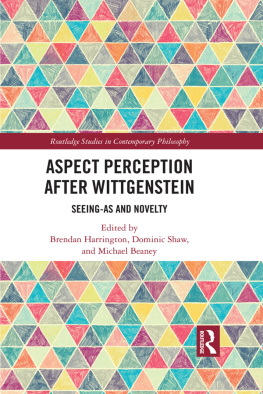
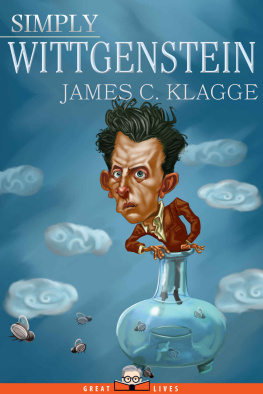
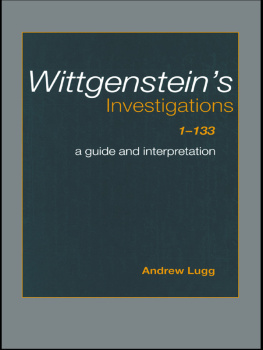
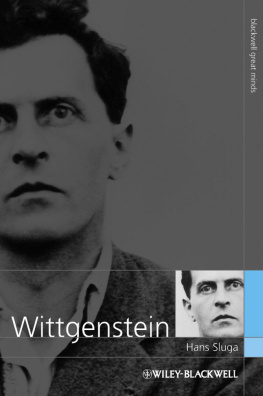
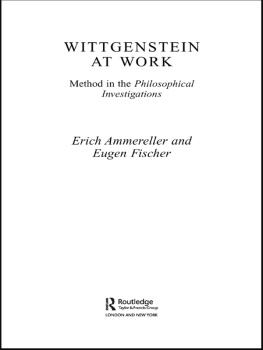
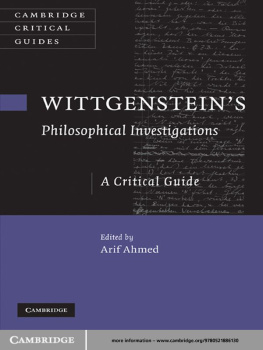

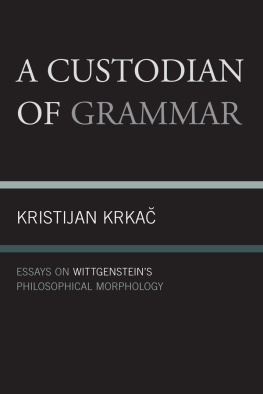

 The paper used in this publication meets the minimum requirements of American National Standard for Information SciencesPermanence of Paper for Printed Library Materials, ANSI/NISO Z39.48-1992. Printed in the United States of America
The paper used in this publication meets the minimum requirements of American National Standard for Information SciencesPermanence of Paper for Printed Library Materials, ANSI/NISO Z39.48-1992. Printed in the United States of America